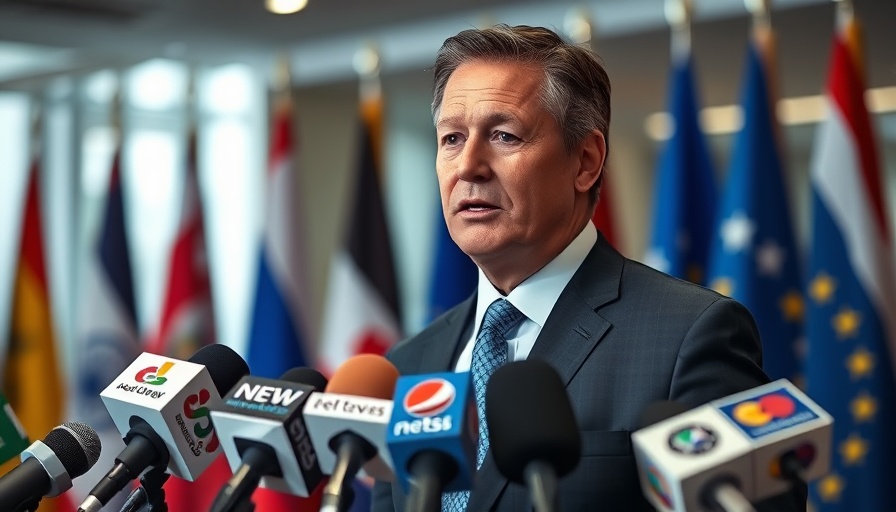
The Return of the Draft: Germany's Response to Military Shortages
In a bold statement on May 24, 2025, German Defense Minister Boris Pistorius announced that Germany might reinstate its military draft if volunteer enlistment numbers continue to dwindle. This announcement comes amid growing concerns regarding military readiness within the nation as volunteer recruitment struggles to meet the demands of modern defense.
A Historic Context: The Evolution of Military Service in Germany
The idea of reinstating military conscription in Germany evokes memories of its past. After World War II, the country abolished the draft, transitioning to a volunteer military system. Since then, Germany has been redefining its military stance in response to global threats and its commitments as a NATO member. The potential reintroduction of the draft signals a significant shift in the nation’s defense strategy aimed at addressing emerging threats, particularly in the wake of geopolitical tensions in Eastern Europe.
The Current State of Volunteer Enlistment
Defense Minister Pistorius noted that volunteer enlistment has not met the required levels necessary for a fully operational military. The crux of the matter lies in the youth's changing perception of military service. Many young Germans today view a military career as less appealing compared to other professional opportunities available. This change raises questions about society’s engagement with national service.
Broader Implications of a Military Draft
The prospect of renewing conscription could impact various sectors—both militarily and socially. The historical precedents of conscription show that it can foster national unity and a stronger communal effort towards defense. Conversely, there are concerns about its implications for civil liberties and the societal implications of mandatory military service. Moreover, nations such as Israel and South Korea, which have successfully implemented conscription, provide potential models for Germany to evaluate.
Future Trends: Could Germany's Move Influence Other Nations?
As more countries are contending with similar enlistment issues, Germany's deliberation might invite scrutiny and discussion among European allies. If Germany were to reinstate the draft successfully, it could provoke a ripple effect, influencing neighboring countries to consider similar measures in response to defense needs amid rising tensions globally. The interconnectedness of military readiness across Europe, coupled with shared NATO commitments, makes this decision especially relevant.
Public Reaction and Political Discourse
The reaction from the public and policymakers to these proposed changes will be telling. While some citizens may view the draft as a necessary move for national security, others may see it as an infringement on personal freedom. Politically, parties will likely need to navigate the complex landscape of national security versus civil rights in the coming debates. How these discussions unfold will be crucial in shaping the future of Germany’s military policy.
Actionable Insights: What Citizens Can Do
For German citizens, staying informed about national defense issues will be vital. Engaging in public discourse, attending town hall meetings, and participating in consultations about military policy can empower individuals to shape decisions about conscription. Moreover, understanding historical contexts and current military states will allow citizens to make informed opinions.
Understanding the possibility of a military draft is not merely an academic exercise—it is a pressing reality that could impact many facets of life in Germany. As the nation reflects on its evolving defense posture, the call for action resonates not just for policymakers but for every citizen.
Concluding Thoughts
The dialogue surrounding the possibility of reinstating military conscription in Germany is only beginning. If volunteer enlistments fall short of what is needed to maintain national security, these discussions could transform into tangible policy. It is essential for citizens to engage actively in this topic. Understanding the implications and participating in conversations about military service can help shape a nation’s future—a future that may once again include a draft.
 Add Element
Add Element  Add Row
Add Row 



Write A Comment